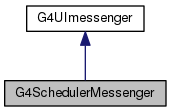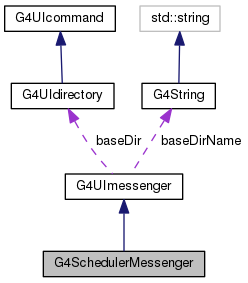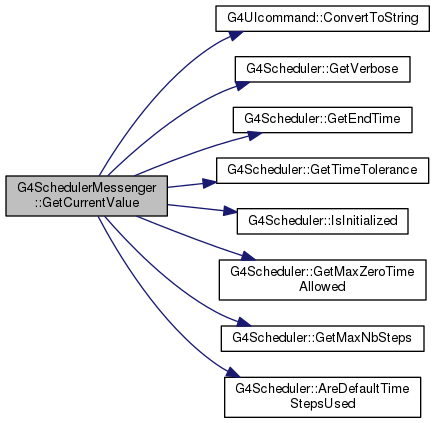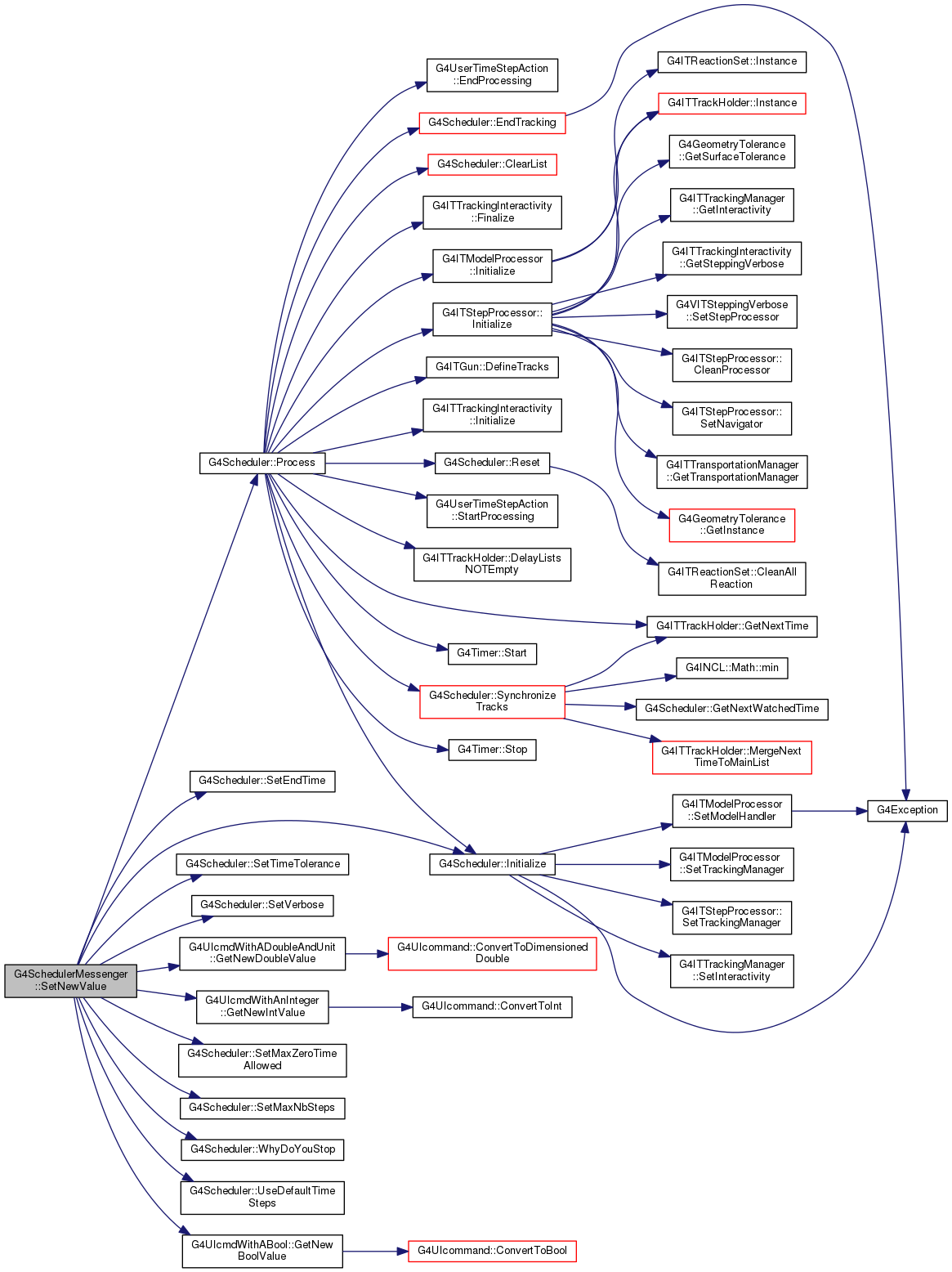#include <G4SchedulerMessenger.hh>
Definition at line 66 of file G4SchedulerMessenger.hh.
| G4SchedulerMessenger::G4SchedulerMessenger |
( |
G4Scheduler * |
runMgr | ) |
|
Definition at line 47 of file G4SchedulerMessenger.cc.
51 fITDirectory->
SetGuidance(
"Control commands for the time scheduler "
52 "(dna chemistry applications).");
56 fEndTime->
SetGuidance(
"Set time at which the simulation must stop.");
65 fTimeTolerance->
SetGuidance(
"This command aims at resolving issues related to"
66 " floating points. If two time events are separated by less than the "
67 "selected tolerance, they are assumed to belong to the same time step.");
75 fInitCmd->
SetGuidance(
"Initialize G4Scheduler. This is done "
76 "for standalone application only (no physics).");
82 fMaxNULLTimeSteps->
SetGuidance(
"Set maximum allowed zero time steps. After this "
83 "threshold, the simulation is stopped.");
86 fMaxNULLTimeSteps->
SetRange(
"numberOfNullTimeSteps >=0 ");
89 fMaxStepNumber->
SetGuidance(
"Set the maximum number of time steps. After this "
90 "threshold, the simulation is stopped.");
96 fProcessCmd->
SetGuidance(
"Process stacked tracks in G4Scheduler. This is done "
97 "for standalone application only (no physics).");
102 fVerboseCmd->
SetGuidance(
"Set the Verbose level of G4Scheduler.");
104 fVerboseCmd->
SetGuidance(
" 1 : Display reactions");
111 fWhyDoYouStop->
SetGuidance(
"Will print information on why the scheduler is "
112 "stopping the process");
114 fUseDefaultTimeSteps =
new G4UIcmdWithABool(
"/scheduler/useDefaultTimeSteps",
116 fUseDefaultTimeSteps->
SetGuidance(
"Let the G4 processes decided for the next "
117 "time step interval. This command would be interesting if no reaction has "
118 "been set and if one will want to track down Brownian objects. "
119 "NB: This command gets in conflicts with the declaration of time steps.");
void SetDefaultValue(G4double defVal)
void SetParameterName(const char *theName, G4bool omittable, G4bool currentAsDefault=false)
void SetUnitCategory(const char *unitCategory)
void SetRange(const char *rs)
void SetGuidance(const char *aGuidance)
void AvailableForStates(G4ApplicationState s1)
void SetDefaultUnit(const char *defUnit)
void SetDefaultValue(G4int defVal)
| G4SchedulerMessenger::~G4SchedulerMessenger |
( |
| ) |
|
Definition at line 122 of file G4SchedulerMessenger.cc.
124 delete fTimeTolerance;
128 delete fMaxNULLTimeSteps;
129 delete fMaxStepNumber;
132 delete fWhyDoYouStop;
133 delete fUseDefaultTimeSteps;
Reimplemented from G4UImessenger.
Definition at line 179 of file G4SchedulerMessenger.cc.
183 if (command == fVerboseCmd)
187 else if (command == fEndTime)
191 else if (command == fTimeTolerance)
195 else if (command == fInitCmd)
199 else if (command == fMaxNULLTimeSteps)
204 else if (command == fMaxStepNumber)
208 else if (command == fUseDefaultTimeSteps)
double GetTimeTolerance() const
static G4String ConvertToString(G4bool boolVal)
G4bool AreDefaultTimeStepsUsed()
G4int GetMaxNbSteps() const
G4double GetEndTime() const
int GetMaxZeroTimeAllowed() const
Reimplemented from G4UImessenger.
Definition at line 136 of file G4SchedulerMessenger.cc.
139 if (command == fProcessCmd)
143 else if (command == fEndTime)
147 else if (command == fTimeTolerance)
152 else if (command == fVerboseCmd)
156 else if (command == fInitCmd)
160 else if (command == fMaxNULLTimeSteps)
165 else if (command == fMaxStepNumber)
169 else if (command == fWhyDoYouStop)
173 else if (command == fUseDefaultTimeSteps)
static G4int GetNewIntValue(const char *paramString)
void SetEndTime(const double)
void SetTimeTolerance(double)
static G4double GetNewDoubleValue(const char *paramString)
static G4bool GetNewBoolValue(const char *paramString)
void SetMaxNbSteps(G4int)
void SetMaxZeroTimeAllowed(int)
void UseDefaultTimeSteps(G4bool)
The documentation for this class was generated from the following files:


 Public Member Functions inherited from G4UImessenger
Public Member Functions inherited from G4UImessenger Protected Member Functions inherited from G4UImessenger
Protected Member Functions inherited from G4UImessenger Protected Attributes inherited from G4UImessenger
Protected Attributes inherited from G4UImessenger

